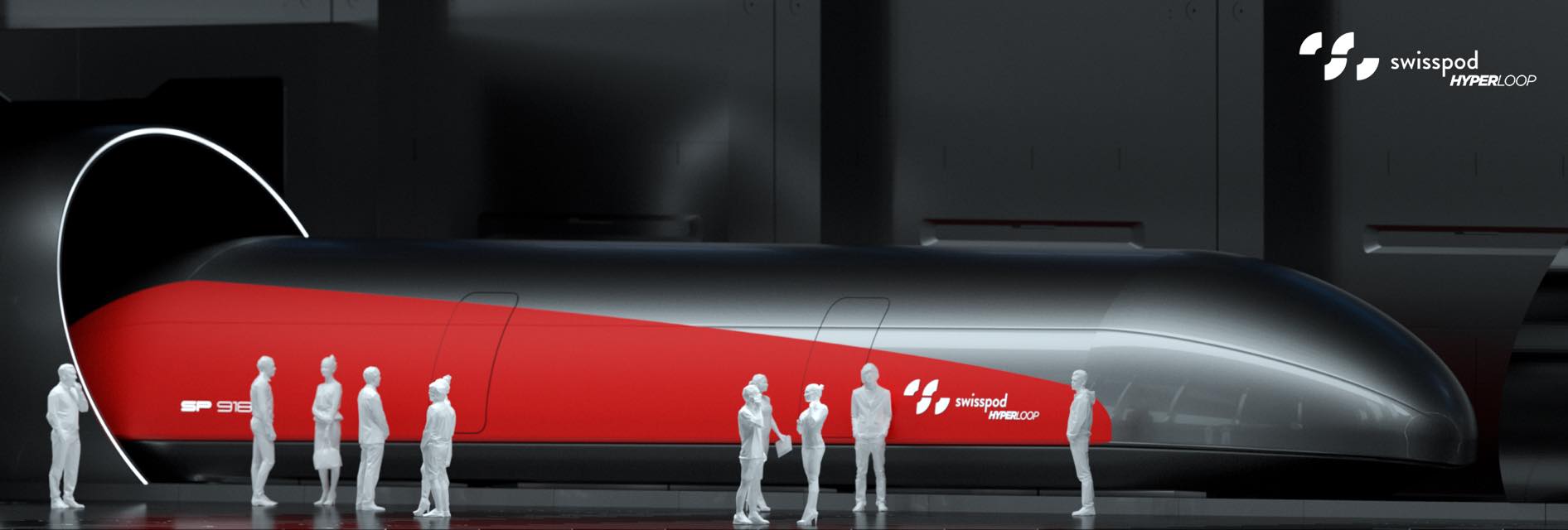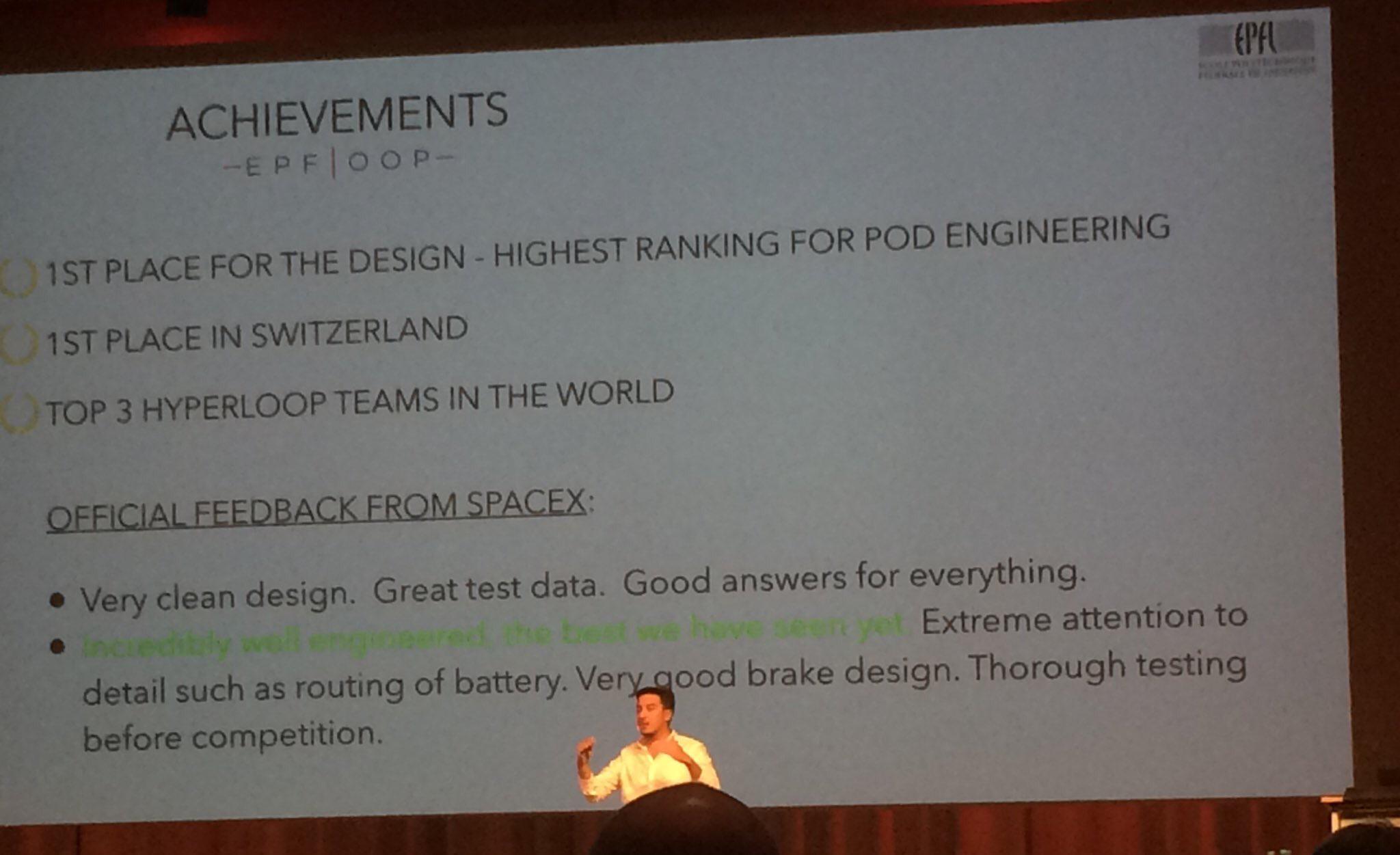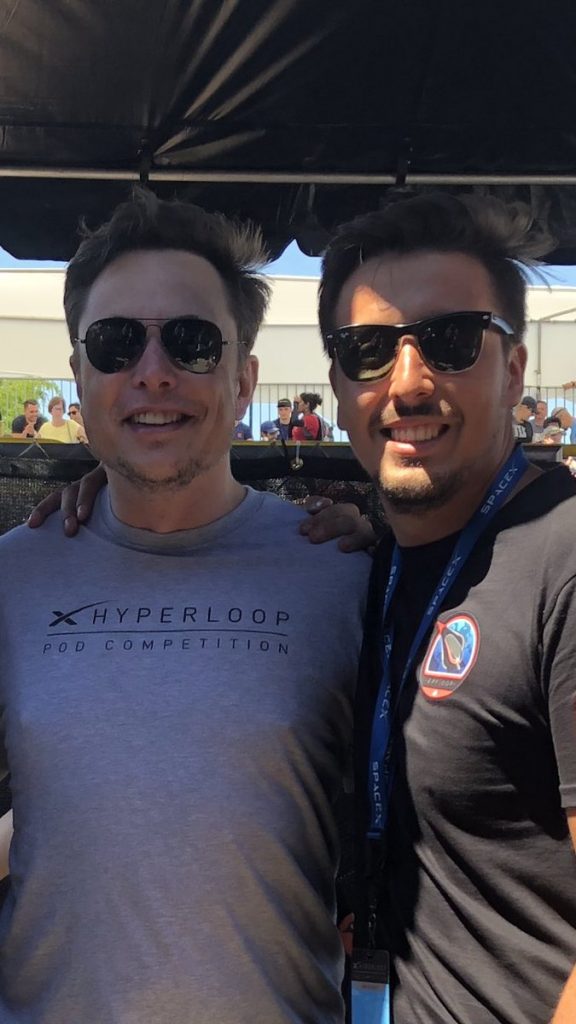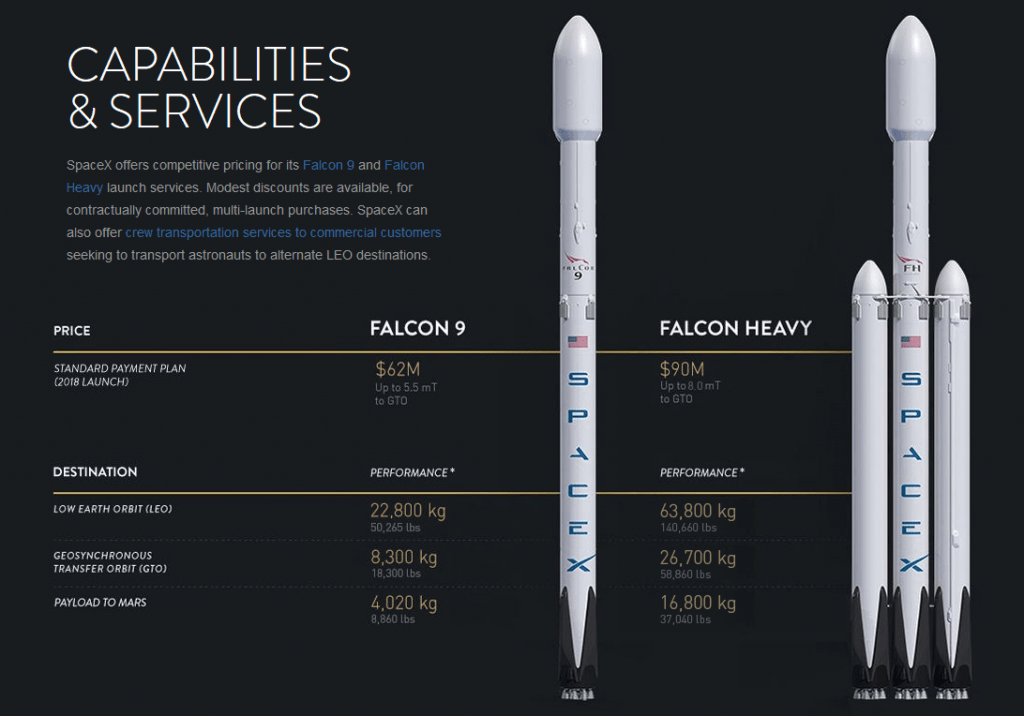Denis Tudor (co-founder at Swisspod Technologies): Hyperloop is the future of transportation
Denis Tudor is CEO and Co-founder at Swisspod Technologies. His startup is building the most efficient and affordable Hyperloop solutions.

CEO & co-founder Swisspod Technologies Denis Tudor
I reached out to Denis to learn more about the hyperloop and why he believes it is the future of transportation.
1. Speed is killing the planet. How does the hyperloop help stop the climate crisis?
Speed is killing the planet. I think it is time to focus on efficiency and sustainability. Our Hyperloop company, Swisspod, focuses to bring on the market the most affordable and efficient Hyperloop solutions, which means sustainability.
To fix ideas, for an average travelling speed 10x more than an electrical car, the CO2 emissions/km/passenger are 4x less.
We do need to stop the climate crisis and it is our duty (scientists and entrepreneurs) to convince the decision-makers to implement such solutions.
At the moment, we focus on reducing the CO2 footprint in Switzerland for a route between Geneva and Zurich (226 km). We propose a solution of 17 minutes for an energy consumption cost per passenger per journey of around 8 CHF.
2. What is the 5th mode?
5th mode is… the 5th mode of transportation. We have planes, trains, cars and boats.
Hyperloop will be the new mode of transportation which can be defined “as fast as a plane, as convenient as a train”.
It represents a transportation solution which can achieve sonic speed (1200 km/h) with lower CO2 emissions and energy consumption.

The Swisspod hyperloop pod design / Swisspod.ch
3. Your team entered the SpaceX Hyperloop competition this year and was the third-fastest transport pod. Your pod also ranked 1st in safety. Congratulations!
Thank you. Actually, my experience in Hyperloop is much longer.
I started this adventure in 2015 when Elon Musk launched the first Hyperloop Competition ever. The first competition was held in 2 different stages: design weekend and competition weekend. Around 10k teams from the entire world registered in the competition. We got the first prize for the best design award from Elon Musk.
After we won the Design Weekend in January 2016, we had a crowdfunding campaign in the Silicon Valley where we managed to fundraise the money we wanted. We had different collaborations with companies in Silicon Valley, as well as with NASA Ames California.
In September 2016 we won the first prize for the best design at a Hyperloop competition in Dubai.
In January 2017, the competition weekend was organized and we were awarded the Best Innovation Award after we built what we proposed at the design weekend. This was the second first prize from Elon Musk. Due to some issues, in the second competition, we did not get any award and I left the team.
I arrived in Switzerland and I created my own team here. At the third competition, we were awarded the first prize for safety and third prize for speed.
As a conclusion, I was awarded 4 different prizes in the last 3 years with 3 different capsules from Elon Musk: 1st prize for the Best Hyperloop Design, 1st prize for Innovation, 1st prize for Safety, 3rd prize for speed.

Denis Tudor at the biggest event in EPFL / LinkedIn
Now, I am retired from the competition and I opened my start-up with a Swiss person. I think it is time to let other young people push boundaries and have better results than us.
My only regret is that I did not win the 1st prize for speed, but yeah… speed is killing the planet.
At the moment, I focus on my start-up in Switzerland, Swisspod and on my PhD studies. I do a PhD in optimal sizing of the Hyperloop capsules in electrical energy. World-widely, this PhD is ranked second after Singapore. So, yes, pretty tough life… kidding. It is fun.
4. What was it like to meet Elon Musk? What did he like about your pod design?
Elon is a nice guy. I met him twice.
The last meeting was in the summer of 2018 where we had a meeting of about one hour. We had a very nice conversation and he inspired me to create the Swisspod Technologies company.
We also discussed the future of transportation and our pod design. He was especially impressed by our battery energy storage system which had a better performance than a Tesla.
Just to give you an idea, we created a vehicle whose power to mass ratio is 3x more than a Bugatti Veyron and 2x more than a Tesla.

Denis Tudor and Elon Musk
5. Share your vision of the future.
I hope Hyperloop will represent one of the transportation solutions. I do believe in complementary transportation solutions which means that we need to interconnect the different modes of transportation.
I believe in a fossil-fuel-free world and very low CO2 emissions. This represents a very important issue that needs to be solved worldwide.
In my vision of the future, AI will play a vital role but it will be constrained by different boundaries created by humankind.
Join the Conversation
We’d love to hear what you have to say.
Get in touch with us on Facebook Group and Twitter.
Why are SpaceX rockets vital to the future of humankind?
SpaceX rockets will play a vital role in the future of humankind.
Find out why in the video!
Join the Conversation
We’d love to hear what you have to say.
Get in touch with us on Facebook Group and Twitter.
SpaceX Rockets Are Vital To The Future of Humankind. Here’s Why
SpaceX rockets will play a vital role in the future of humankind. We will evolve as a species thanks to the amazing rockets built by Elon Musk’s space company, there’s no doubt about it.
Read on to find out why.
Humans cannot survive on Earth indefinitely. We will go extinct if we do not become a spacefaring species.
Stephen Petranek, Author ‘How We’ll Live on Mars’
Elon Musk founded SpaceX in 2002 with one mission: to enable humans to go to Mars thus becoming a spacefaring civilization.
![]()
Spacefaring: having vehicles capable of travelling beyond the Earth’s atmosphere (Merriam-Webster)
![]()
When Elon Musk told people he had decided to enter the space industry business, they told him he was crazy and laughed at him.
But to make his dream come true, he knew he the key to getting to Mars was the reusability of rockets. So that’s what he set out to achieve.
What is reusability?
We reuse cars, we reuse planes, trains etc. Think of it: what if cars were of single-use? Would you have enough money to buy a new car every time you needed to drive someplace?
That’s why space programs are so expensive. Each Space Shuttle mission cost the US over $1 billion. Reusability is an economic principle but it wasn’t applicable to rockets until 2017. In the last decades, the US put its space program on pause due to its rising costs.
What does rocket reusability mean?
It means firing a rocket into orbit, launch a payload into space, bring the rocket down to land vertically, clean it, refuel it and send it back to space. It’s an incredibly complicated task from an engineering point of view. No other rockets in the history of human spaceflight ever achieved this. All previous rockets fired by NASA during the 1960s space program crashed into the ocean.
Right now it costs $60 million to launch a rocket. If we could re-use a rocket a thousand times the price goes down to $60K. Spaceflight would stop being expensive and walk into a new stage: commercial spaceflight.
Vertical landing and reusability – a first in spaceflight history
To reuse a rocket first you need to have the rocket land vertically. Landing a rocket vertically on the ground after it’s been in space had never been done before. Falcon9 landed on the ground successfully in 2015.

Falcon 9 / source: teslarati.com
In 2017 SpaceX achieved the world’s first reflight of an orbital class rocket when the Falcon 9 returned to Earth for the second time.
It was an incredible achievement, a feat of engineering on its own! It’s the first step towards fulfilling Elon’s dream of establishing a human colony on Mars in his lifetime.
There are a thousand ways a rocket could fail and one way that it could succeed.
Elon Musk
Watch Falcon9 land after its second trip to space:
Benefits of rocket reusability
Rockets reusability ushered in many benefits:
- It drives costs down while raising revenue;
- SpaceX establishes itself as the first commercially viable space company;
- It democratizes spaceflight as Apple democratized the access to digital information and Kodak, photography;
- It revolutionizes space technology;
- It allows homo sapiens to set out to the next stage of evolution: becoming a spacefaring species, making sure we have a secured future.
SpaceX Facts and Numbers
- Founded in 2002;
- 100+ launches contracted;
- 6000+ employees;
- The only private company capable of returning a spacecraft from low Earth orbit (2010);
- Launched the first commercial spacecraft to deliver cargo to and from the International Space Station (2012);
- The first historic reflight of an orbital class rocket (2017);
- Launched Falcon Heavy, the world’s most powerful operational rocket by a factor of two (2018);
- Over $12 billion on contract;
- The Dragon mission will soon fly astronauts under NASA’s Commercial Crew Program.
Falcon Heavy – Bigger and Bolder
Falcon 9 achieved vertical landing on Earth and paved the way for rockets reusability. It was time for SpaceX to go to the next level.
Enter Falcon Heavy – the most powerful launch vehicle since Saturn V.
The Falcon Heavy has the ability to lift more than the weight of a 747 jet loaded with passengers, crew, luggage and fuel.
The rocket is fitted with two reusable boosters and increased payload capacity making it the only vehicle able to transport the huge amount of supplies needed to establish a colony on Mars.

source: spacex.com
I see no better way of ending this article than to invite you to watch the vertical synchronous landing of Falcon Heavy’s boosters, an engineering feat previously deemed impossible:
Did you get goosebumps?
I did!
Learn More
Elon Musk: from living on $1/a day to building a spaceship company
Join the Conversation
We’d love to hear what you have to say.
Get in touch with us on Facebook Group and Twitter.

